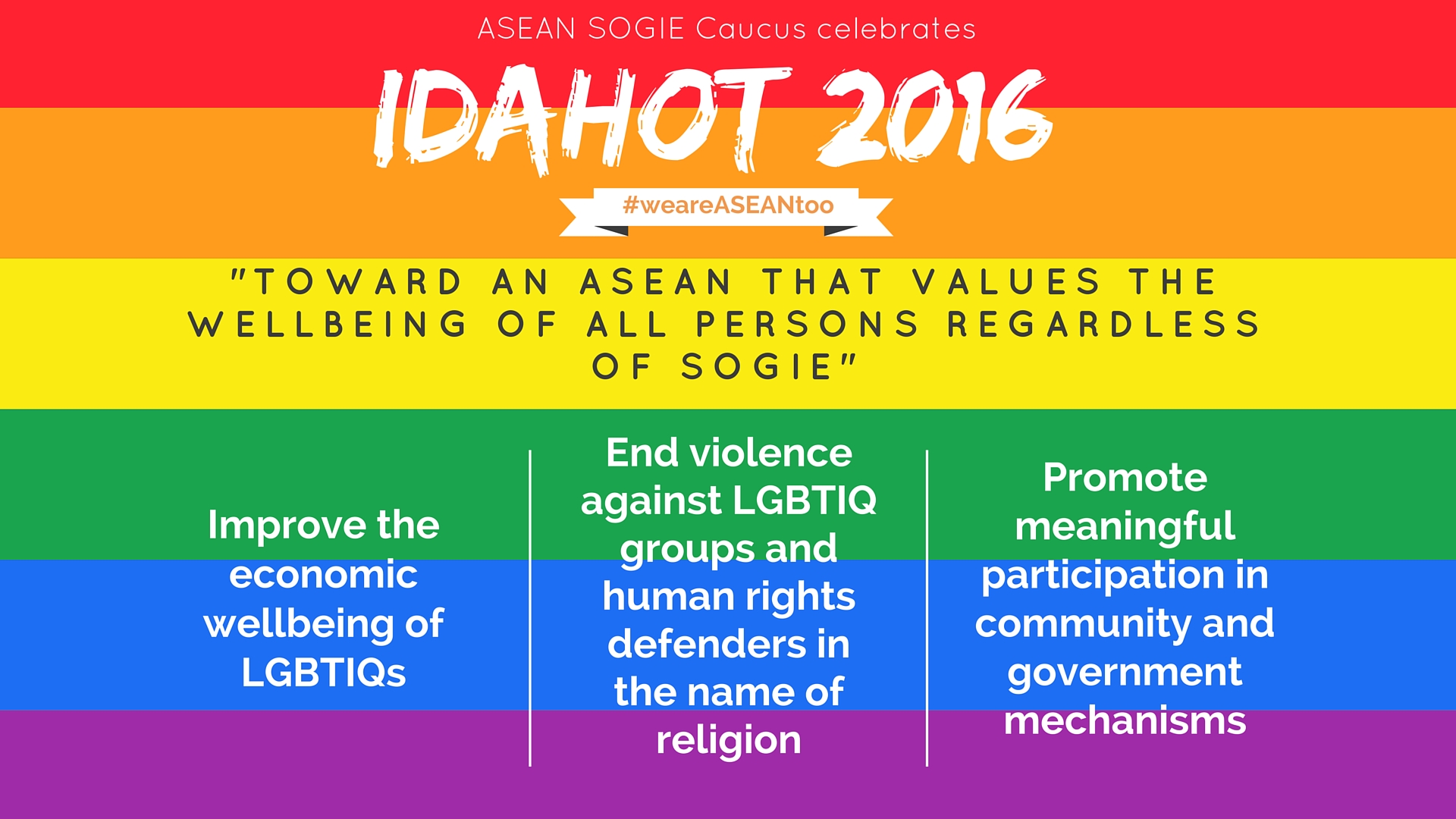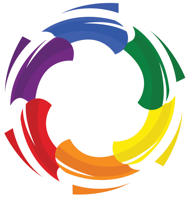Toward an ASEAN that Values the Wellbeing of All Persons Regardless of SOGIE

The ASEAN SOGIE Caucus joins the LGBTIQ community as we celebrate this year’s International Day Against Homophobia and Transphobia (IDAHOT) this 17th of May. In parallel with 2016’s global focus issue, Mental Health and Wellbeing, ASC expresses its full support for the promotion of the overall welfare of LGBTIQ in the Southeast Asian region. With its diverse nations and cultures, LGBTIQ in Southeast Asia have a wide variety of concerns with regard to wellbeing. Aside from pathologization due to widespread homophobia and transphobia, LGBTIQs in the region also face lack of protection from attacks by oppressive religious and political groups, as well as socio-economic barriers that prevent them from living full, well-rounded lives.
The ASC puts forward three main areas wherein LGBTIQ wellbeing can be fully improved upon:
1. Improve the economic wellbeing of LGBTIQs:
We urge the governments in the region to take initiatives to end economic marginalization of LGBTIQs, and implement measures to address poverty and economic disparity caused by discrimination. Poverty and homelessness are widespread amongst LGBTIQs because of lack of employment opportunities and being driven away from homes by homophobic and transphobic families and communities. Policies that address the issue of discrimination in the workplace would go a long way toward helping LGBTIQs empower themselves economically and find a better sense of self-value as members of their communities.
2. End violence against LGBTIQ groups and human rights defenders in the name of religion:
The early months of 2016 bore witness to several events wherein the safety and welfare of LGBTIQs and activists have been challenged by oppressive groups. Many of this happened in Indonesia, wherein political officials have made statements against the existence of LGBTIQ groups in universities, an Islamic boarding school for transgender women or waria was forced to closed by local authorities, and the Indonesian Broadcasting Company released a statement forbidding “cross-dressing” and “effeminate” males from appearing in their television programs.
In Malaysia, transgender women have also repeatedly faced oppression, most notably this March 2016 wherein 12 trans women were arrested and detained under charges of violating a law prohibiting males-assigned-at-birth from dressing as women. These incidents are only some of the manifestations of the continuous social and political oppression in many ASEAN countries where LGBTIQs are criminalized and/or viewed as taboo.
The ASC recommends that ASEAN governments take action in ensuring the safety of LGBTIQs and human rights defenders from extremist groups, starting from within the local communities and academes where many of them are vulnerable to attacks.
3. Promote meaningful participation in community and government mechanisms:
Aside from economic security and safety from oppressive groups, LGBTIQs also need to be able to have a strong voice in policy formation in both local and regional mechanisms. Without proper representation, LGBTIQs would not be able to see their own needs and concerns included in the ASEAN policy-making agenda. One of ASC’s priority areas for years 2016 to 2019 is integrating SOGIE in the ASEAN’s efforts toward fulfilling the Sustainable Development Goals (SDGs). With this, the organization would like to join local and regional efforts to mainstream SOGIE concerns by finding avenues for inclusion of LGBTIQ issues in policies created under the SDGs.
The ASC calls upon both the governments and activist groups in the region to work together toward creating an ASEAN that values the wellbeing of each and every citizen regardless of their SOGIE. We recommend that governments make the necessary efforts toward protecting the socio-economic and political rights of its LGBTIQ constituents. This can be done through enacting relevant local policies that address systematic discrimination and outright harmful attacks. We also would like to encourage local and regional LGBTIQ rights defenders to give greater effort toward using all available mechanisms to engage international governments such as the UN Human Rights Council. This would go a long way toward mainstreaming the issues experienced by LGBTIQs in regional and local policies.
